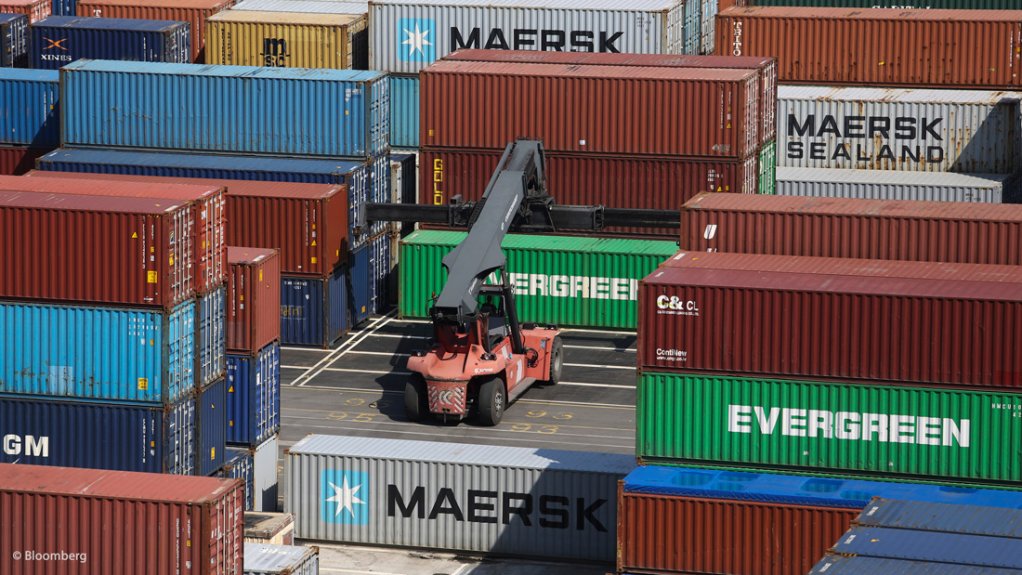President Jacob Zuma has deepened South Africa’s bilateral trade relationship with “sister republic” Zimbabwe, expounding on the countries’ strong political, cultural and economic similarities and reminiscing on their historical linkages.
According to Zuma, opportunities for deeper economic cooperation between the two countries existed in the mining, water, energy, infrastructure development, transport and information and communication technology sectors and would be enabled through the signing, earlier this week, of several bilateral trade agreements between himself and Zimbabwe President Robert Mugabe, whose two-day State visit to South Africa came to an end on Thursday.
“We had very fruitful talks yesterday and, most importantly, signed agreements, [one of which will involve] establishing a binational commission that will be chaired by the two heads of State and will meet yearly to ensure that relations at all levels are advanced.
“South Africa and Zimbabwe share not only strong political and cultural relations but also, and most profoundly, the economies of our countries are historically interlinked. There are many similarities between our countries’ paths to economic prosperity,” he told the South Africa–Zimbabwe Business Forum, in Pretoria, while counterpart Mugabe looked on.
The forum, which was organised by the two countries’ trade departments, was described by Trade and Industry Minister Dr Rob Davies as an opportunity for South African and Zimbabwean businesses to interact “positively” around possible trade synergies.
“We understand [that, as government], we can’t do it on our own, [we] need to do it in partnership with the private sector, and we’ve brought businesspeople together today to exchange business ideas that will inform the work that we are doing.
“During [Mugabe’s] visit, we have [also] had the opportunity to create a stronger basis of cooperation between the two countries, having yesterday signed an economic cooperation memorandum of understanding to address several trade and tariff issues so that we can find an acceptable basis of regional trade that ensures that the regional market gets [trade] preference,” he said.
According to Zuma, foreign direct investment by South African entities in Zimbabwe from 2003 to 2013 amounted to some R12.8-billion, creating over 2 485 employment opportunities.
These included inputs by South African companies Nedbank, Impala Platinum, Standard Bank, Old Mutual and Tongaat-Hulett.
Moreover, South African exports to Zimbabwe grew by 247%, from R7.1-billion to R24.8-billion over the same period, while Zimbabwean exports to South Africa fell 54.7% to R2-billion over the decade.
“South African exports to Zimbabwe comprise machinery, electrical equipment, mechanical appliances, chemical products, base metals, mineral products and agroprocessed products.
“In turn, Zimbabwe’s exports to South Africa include textiles, pearls, precious and semiprecious stones, as well as base metals and mineral products,” he outlined.
Zuma added that the two governments had paved the way for regional integration and regional cooperation through various agreements, arguing that there was no stronger case for intensifying intra-African trade and diversifying away from the export of raw materials than recent slips in commodity prices and a weakening oil price, all of which had dampened African export revenue.
This would, however, need to be preceded by the establishment of enabling technical and transport infrastructure.
“An integrated Africa has a potential market of $2.6-trillion…and offers mutually beneficial trade and investment partnerships and initiatives such as the Tripartite North–South Corridor Investment Programme, which has initial funding of $1.2-billion,” he remarked.
Zuma added that both he and 91-year-old Mugabe would work towards creating an enabling environment for businesses wishing to strengthen or establish cross-border ties.
“Don’t be [afraid] to tell us what we need to do to facilitate success…we need to hear your voice more loudly and clearly.
“You can change things politically, but if you don’t change things economically, forget it,” he enthused.
Mugabe, meanwhile, said during a lengthy address to the forum on Thursday that he hoped that the platform would encourage other African “territories” to emulate efforts towards trade integration and cooperation.
He added that African countries could no longer remain exporters of primary commodities while simultaneously expecting to grow their economies.
“We are starting steps that will be improved upon in the future, but we’re glad that we have signed a landmark deal by which we reinforce the framework between our countries.
“Work is under way to improve the ease of doing business in Zimbabwe…and we are intensely working towards improving the investment climate,” he held.
The elderly Statesman added that Zimbabwe welcomed foreign investment, contrary to “some media reports”.
“I assure you that Zimbabwe is open for business and is a serious and sincere partner to all those who are similarly disposed,” he concluded.
EMAIL THIS ARTICLE SAVE THIS ARTICLE
To subscribe email subscriptions@creamermedia.co.za or click here
To advertise email advertising@creamermedia.co.za or click here











